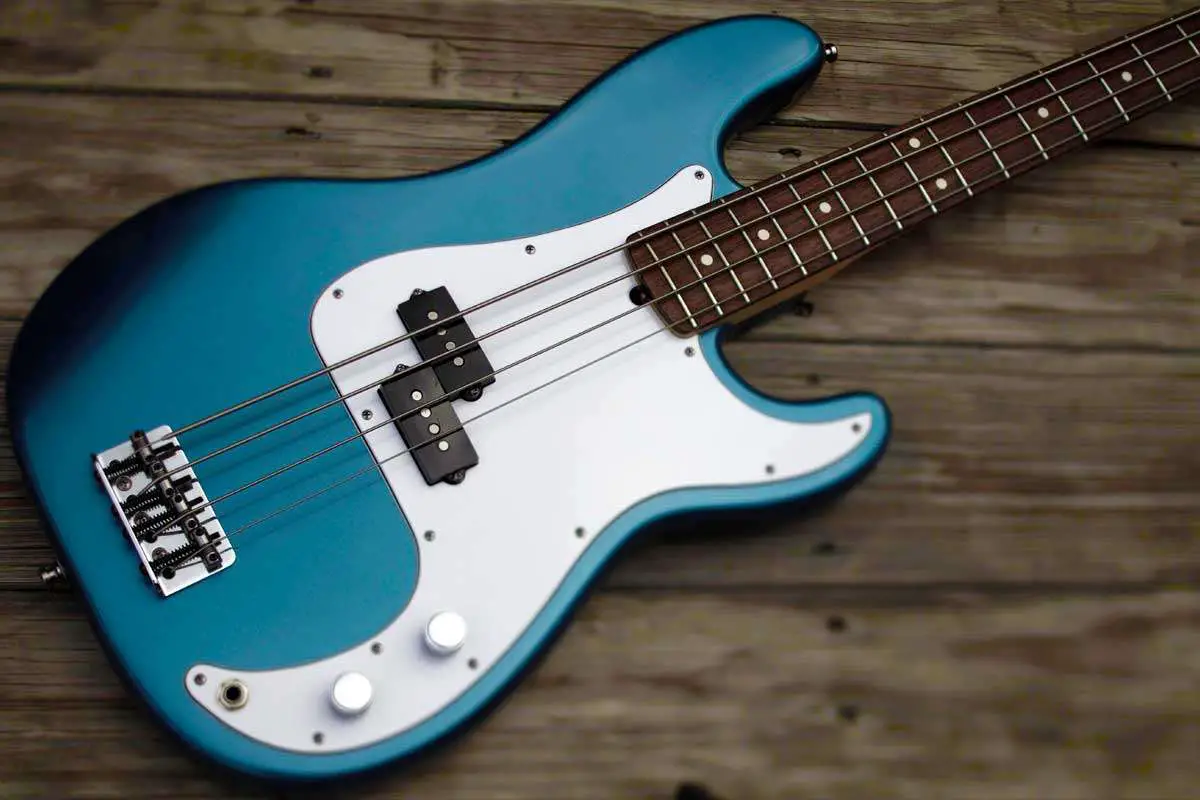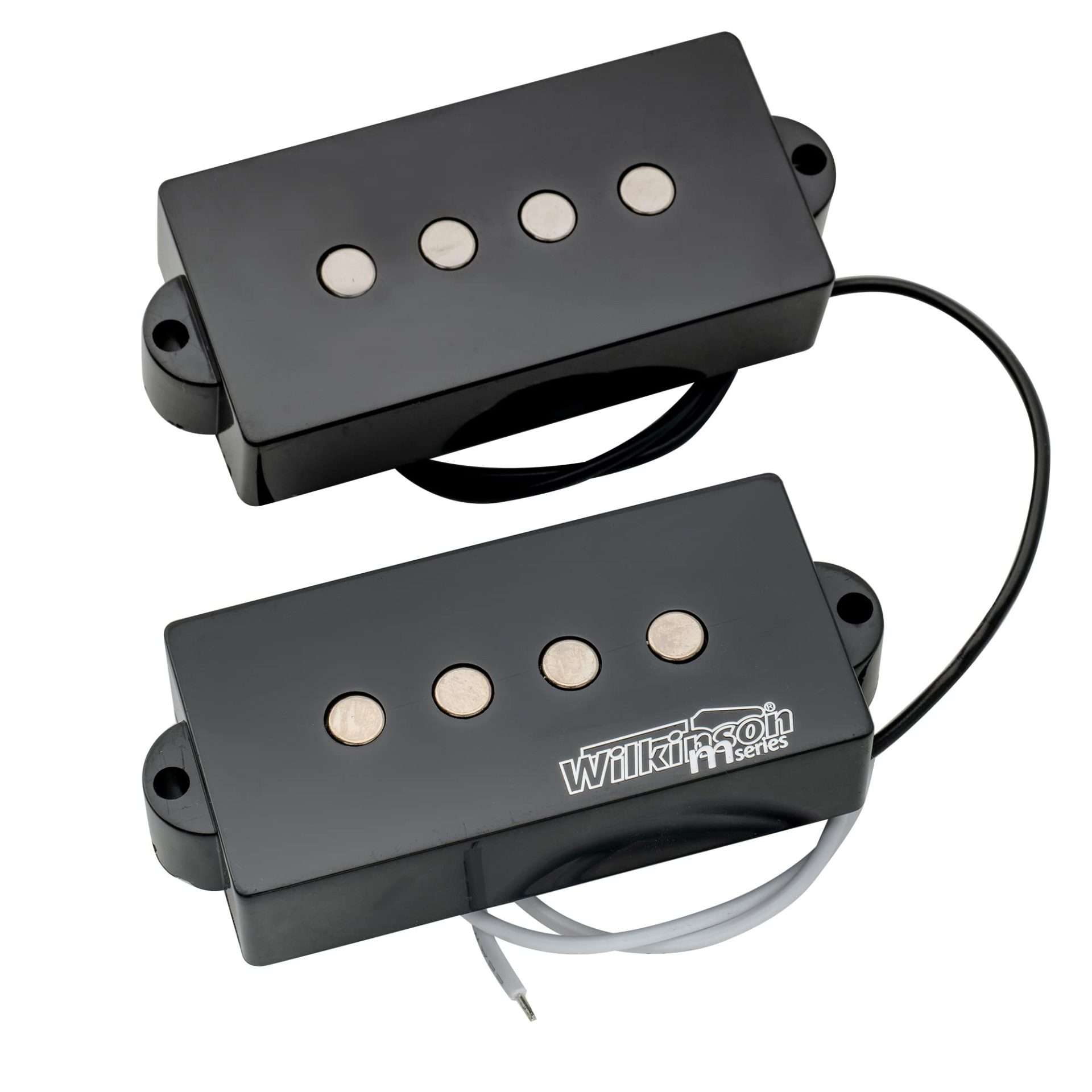Imagine your bass guitar as a sleeping giant. Now, what if I told you that the right pickup could wake that giant and make it roar? The best bass pickups are like magic wands for your low-end, transforming your four (or five) strings into a thunderous force of nature.
From the warm, vintage growl that’d make James Jamerson proud to the modern, punchy clarity that cuts through any mix like a hot knife through butter, these magnetic marvels are the secret sauce of bass tone. However, choosing the wrong pickup is like trying to tame a lion with a feather duster.
Whether you’re laying down grooves that shake stadiums or crafting subtle lines that whisper in jazz clubs, finding the right pickup can be the difference between being the backbone of the band and getting lost in the sonic soup.
Ready to unlock the full potential of your bass and discover pickups that’ll make your instrument sing, growl, and everything in between? Let’s dive into the world of bass pickups and find the one that’ll have other musicians asking, “What’s your secret?”

Top Bass Pickups for Enhanced Low-End Tonality
Bass pickups are crucial for capturing the full range of sound from your strings and translating it into a powerful electrical signal. We’ve compiled a selection of top-tier pickups that promise to enrich your bass guitar’s sonic depth and clarity. Our list is carefully curated to ensure that you find pickups that will deliver consistent performance, whether you’re laying down groovy bass lines in the studio or rocking out on stage.
Fender ’60s J-Bass Pickups

We highly recommend these pickups for anyone seeking a rich, vintage tone with a modern punch that significantly elevates sound quality.
Pros
- Amplifies the classic Jazz Bass sound with a snarly twist
- Enhances the midrange and bass response effectively
- Simple installation with included hardware
Cons
- Some may find the tone not as ‘hot’ as expected
- May not fit all bass variations without modification
- Retro sound might not suit all music styles
There’s a tangible difference in sound from the moment you begin playing with the Fender ’60s Jazz Bass Pickups. They effortlessly bring about that sought-after vintage tone, simultaneously rounding out the low end.
The installation was a breeze, and in no time, we felt the bass come alive beneath our fingers. The enhanced midrange gave the bass lines more presence and the lows became beefier, which certainly brought a grin to our faces during the jam session.
However, it’s worth considering the genre of music you play. If vintage sound is your aim, you’re on target with these pickups. For bassists inclined towards modern genres, however, the sound may arguably lack aggression. Nonetheless, the clarity and classic Jazz Bass snarl they offer can be a real game-changer on stage and in the studio.
Seymour Duncan Quarter Pound P-J Set

We’d recommend this pickup set for bassists craving that extra punch and clarity, proving to be an exceptional upgrade from standard pickups.
Pros
- Exceptional tonal quality with a powerful low end
- Great noise reduction compared to standard pickups
- Versatile application across various music genres
Cons
- Installation could be challenging for new users
- Might be overpowering for those who prefer subtler tones
- Expensive compared to some entry-level options
After fitting this Seymour Duncan Quarter Pound set into our bass, the sheer tonal transformation was immediately evident. The previously muted lows now throb with an assertive presence that fills the room. Sustained notes seem to linger longer, exuding a musical warmth that beckons your audience to sit up and listen.
Swapping out old pickups can be a hassle but well worth the outcome. We observed the sound of our P-J bass jumping from adequate to professional-grade with these pickups. The distinctive snap added to each pluck suits genres demanding pronounced, tight bass lines, making these pickups a go-to choice for studio sessions and energetic live performances alike.
Ever versatile, the set accommodates an array of styles, from classic rock to metal without losing their characteristic punch. We couldn’t help but notice the ideal balance between the punchy P-bass and articulate Jazz tones – a feature particularly beneficial for bass players looking to diversify their sonic palette.
EMG Geezer Butler Signature P Pickups

We think bassists seeking that vintage Sabbath growl wrapped in a modern package will appreciate this Geezer Butler P set.
Pros
- Authentic vintage tones
- Solderless installation system cuts down hassle
- Amps up a bass’s presence and grunt
Cons
- Price point may be steep for casual hobbyists
- Passive design lacks the versatility of active models
- Might not suit players looking for a modern sound profile
Installing these pickups in our bass took mere minutes, and we were blown away by the immediate transformation in sound. There’s no mistaking the meaty punch and gritty growl that brought us closer to that iconic Geezer Butler tone. Our Squier bass suddenly felt like it had a new lease on life, proving these pickups were an investment in sound quality rather than just a simple upgrade.
We were relieved to skip the soldering iron with the plug-and-play system. It was delightful to dive straight into playing without wrestling with wires and solder. We’ve found ourselves spending more time playing and less time fiddling with installation, which is a boon for musicians of all skill levels.
Our bandmates noticed the thicker, full-bodied sound these pickups delivered during practice. The clarity and definition on the low end were impressive; every note had its moment in the spotlight without getting lost in muddy tones. Despite the higher cost, it’s clear you’re paying for professional performance.
However, this set might not be for everyone. Players keen on a more contemporary sound might find these pickups leaning too much towards the retro spectrum. We would recommend these for musicians looking to revamp their bass sound with a nostalgic twist while reaping the benefits of modern craftsmanship.
FLEOR Alnico 5 P Bass Pickups

We’d recommend these pickups for anyone on a budget looking to upgrade their bass tone without breaking the bank.
Pros
- Significant tonal improvement over stock pickups
- Comes with necessary installation hardware
- Effective wax potting reduces feedback
Cons
- Mounting may require modification on some instruments
- Wires could be of better quality
- May not offer the nuanced tone of higher-end pickups
The quest for warm, vintage bass tones typically leads us to products far pricier than these FLEOR Alnico 5 P Bass Pickups. What we’ve got here is an affordable entry into the world of sonic upgrades for any bass player. They’ve been dropped right into a backup P Bass, and they’ve breathed new life into an instrument that was, to be honest, pretty flat sounding before.
Installation was straightforward, though we noticed a little finagling was needed to match the pickup’s mounting ears with the pre-existing routing in a non-standard body. The challenge was worth it, though, as the end result was the elimination of that lackluster buzz that we’d grown accustomed to and a clearer, more robust sound.
Durability and output quality are often concerns with budget musical equipment, and while the wires here could be heftier, this detracted little from the pickup’s performance once installed. As for the sound, stylists seeking to capture a faithful, vintage P Bass growl won’t be disappointed. True, a discerning ear might lean towards a pricier unit for a more developed character, but for our money, the fullness and warmth we achieved with these pickups were more than satisfactory for rehearsals and small gig situations.
Wilkinson Precision Bass Humbuckers

We believe these Wilkinson pickups are an excellent choice for players seeking a balance of quality and affordability.
Pros
- Adds depth and body to your tone
- Compatible with most PB style basses
- Installation is straightforward for those familiar with soldering
Cons
- Included screws may not fit all setups
- Sound may not match premium pickups for some styles
- Ceramic magnet can offer different feel from traditional alnico
Upon installing these Wilkinson pickups in our Precision Bass, the immediate impression was how they revitalized the instrument’s sound. The lower register acquired a solid, substantial growl, while the mids and highs maintained clarity without getting too sharp. It’s rare to find such a harmonious balance at this price point.
The precision bass now cuts through mixes better than before. This is attributed to the new Var-Gauss technology. It’s a striking improvement for those accustomed to muddier aftermarket options or the stock pickups that often lack the punch and definition needed in a band setting.
It should be noted that while these pickups are definitely an upgrade for many budget basses, they might not satisfy players accustomed to the nuanced tones of higher-end pickups. However, for most enthusiasts and budget-conscious musicians, the Wilkinson Precision Bass Humbuckers offer a noticeable improvement, infusing new life into an old favorite without breaking the bank.
Buying Guide
Understanding Pickup Types
We start by distinguishing between the two main types of bass pickups: Precision (P) and Jazz (J). The P-type tends to offer a rich, full tone, while the J-type is known for its bright, clear sound.
Tone Characteristics
When choosing bass pickups, consider the desired tone:
- Warmth: Often desired for blues or jazz.
- Brightness: Favoured in rock or metal.
- Clarity: Important for complex chord structures.
Active vs Passive Pickups
| Pickup Type | Characteristics | Power Source |
|---|---|---|
| Active | Higher output, broader tonal range | Battery |
| Passive | Classic tone, less prone to interference | Not required |
We weigh our options between active and passive pickups. Active pickups provide more power and tone shaping, whereas passive pickups offer a traditional sound and are generally more straightforward.
Magnet Types
Pickups come with different magnets that affect tone:
- Alnico: Offers a warm, vintage tone.
- Ceramic: Typically yields a brighter, more edgy sound.
Pickup Configuration
Consider single-coil vs humbucker configurations:
- Single-Coil: Offers a sharp, clear sound but can be prone to noise.
- Humbucker: Produces a fuller sound and is resistant to interference.
Electronics Compatibility
We ensure our chosen pickups are compatible with our bass’s electronics, taking note of:
- The number of control knobs
- The existing preamp circuit (for active pickups)
Installation and Size
Correct sizing is crucial:
- 4-string vs 5-string: Check the spacing and size of the pickups according to the number of strings.
- Pickup Slot: Ensure the new pickups can fit into the existing cavity of our bass.
We review installation requirements to verify if professional installation is necessary or if it’s a friendly DIY project.
Aesthetic Preferences
We also consider the visual style of the pickups, which should match our aesthetic preferences while still delivering the desired sound quality.
